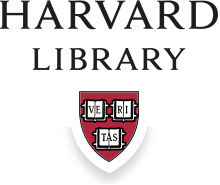Article | Open Access | Published: 28 July 2025
HRM Training as the Heartbeat of Mitigating Burnout and organizational commitment in the High-Stress Healthcare Environment
-
Ruby Shabbir
Ziauddin University
-
Mushtaque Ahmed
Ziauddin University
|
Views:
|
514
|
| |
Downloads:
|
485
|
Abstract:
The healthcare industry addresses employee burnout as an escalating issue that significantly compromises staff well-being, productivity, and the crucial quality of patient care. The role of Human Resource Management (HRM) policies, specifically Stress Management Training (SMT) and Work Environment Training (WET) in mitigating burnout and enhancing organizational commitment (OC) has been the topic of debate for years. Data from 339 healthcare employees was collected through structured questionnaires by leveraging quantitative research design for data acquisition. The collected data was analyzed through Smart PLS-4 software, exploring both direct and mediating relationships among key constructs of this study. Results show both SMT and WET significantly reduce burnout (SMT β=0.776, WET β=0.390; p<0.05), validating their direct impact. Burnout mitigation was found to be a significant predictor of organizational commitment (β=0.494, p<0.05). A key finding from mediation analysis is that Occupational exhaustion serves as a robust mediator for the relationship between both SMT and WET and organizational commitment. Moreover, Occupational exhaustion mitigation aids as a mediator, enhancing the constructive influence of SMT and WET on organizational commitment. The results highlight the intermediating role of burnout, with WET showing a more potent influence than SMT. The results clarify the mandate for nurturing tailored HRM interventions that address both individual stress and systemic workplace challenges.
Keywords:
Burnout mitigation, Work environment training, Organizational commitment, Stress management training
Publisher:
ILMA UNIVERSITY
Published:
28 July 2025
E-ISSN:
2409-6520
P-ISSN:
2414-8393
This is an open access article distributed under the terms of the Creative Commons Attribution CC BY 4.0 license, which permits any use, distribution, and reproduction of the work without further permission provided the original author(s) and source are credited.

















